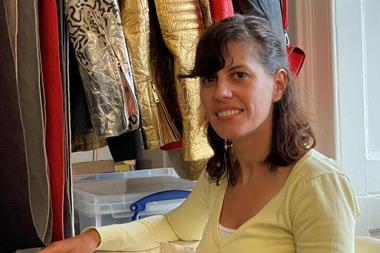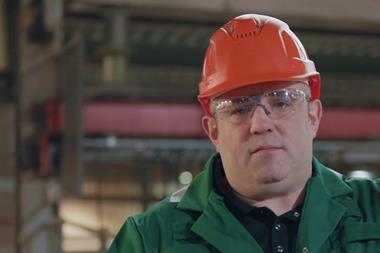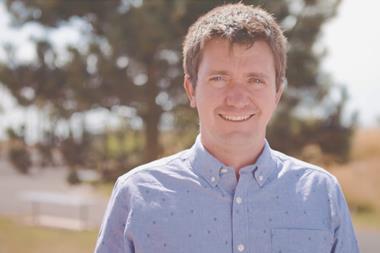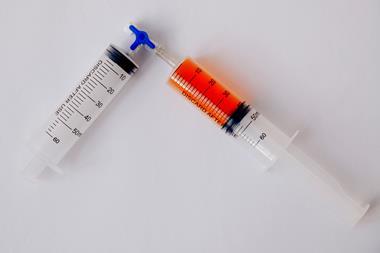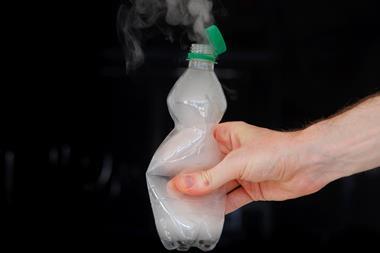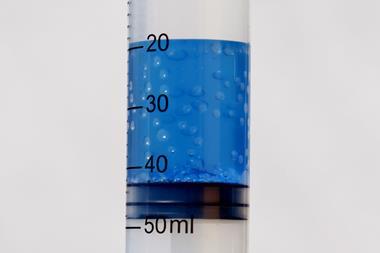Everything you need to know
-

- Salary range: Over £40k
- Minimum qualifications: PhD
- Skills required: Interpersonal, strong communicator, scientific reporting, collaboration
- Training required: No specific training required.
- Work–life balance: Flexible working.
- Career progression: Professional registration available and applying for more senior positions/responsibility.
- Locations: Find related work experience positions using our map of employers
More profiles like Mike's
What do you do in your job?
I work for Chemistry Innovation Ltd, and my job title is sustainability manager. I try to get chemists to understand the opportunities around sustainability. Sustainability problems that we have as a society and other downstream industries that need chemistry to find out what their sustainability issues are and solve them using technology.
The way you do that is to get out and talk to a lot of people, networking. I need to know a lot of industrial chemists - sustainability managers in big companies and small companies, academics who are real leaders in this field - so I understand and know what’s going on in technology but also where the problems are.
What role does chemistry play in sustainability?
Everything’s made of chemistry, made of chemicals, so you need chemistry to help solve those problems. Chemistry’s vital to the future of sustainability. Most of our issues are with materials, you know we have a consumer society, we have a throwaway society, we use a lot of stuff and what we need to do is use that stuff more efficiently. And that’s basically about managing molecules and atoms and that’s what chemists do.
You can’t be a sustainable nation without good chemistry, and we need more good chemists who think the right way.
What do you enjoy most about your job?
Meeting new people is a lot of fun, hearing about great science and whenever you get a success, we can start a new project off you know is going to deliver something really good.
A lot of the time we’re working with relatively mature science, so something an academic has taken to a point where it’s proven that it works, and now it’s taking it through to where we can use it commercially. When you see some of those projects get started, get the funding in the millions of pounds and that enables groups to do work that they really want to do that’s fantastic. And when people come back time and again, to say ‘can you help us?’ you know you’re doing a good job.
How did you get into your job?
I did chemistry at university because that was the subject I enjoyed most at school. I did a sandwich year, in my third year that it was in industry, where I worked for a big pharmaceutical company. And the one thing that came back with me from the end of that year was that I wanted to do a PhD because the people who were higher paid and higher up the ladder all had PhDs. And when I did do a PhD it was a lot of fun, it’s probably the best fun I’ve had in my career. Three years, it’s your own work, it’s your own piece of science, and it was quite successful. We got some good publications out of it, so I really enjoyed that.
From then, to do the kind of job I do you have to have some kind of industrial experience of developing commercial products. I worked for several different small technology companies, developing applications of catalyst technology, for better ways of making pharmaceutical products using chemistry, catalysis, and some microwave technology.
I got quite involved in using microwaves, and what we call flow chemistry doing things in flow rather than in big buckets which is safer and quicker and can be cleaner. As I had some success at doing that, a role like this is easier, because you’ve got experience of taking something through from an idea in a lab to an actual commercial product.
What advice would you give for people wishing to enter your career area?
To do my job I need interpersonal skills, a laptop and a mobile ‘phone. You’re on the road and you’re out seeing people and you keeping a record of all the things you’ve seen is important. One of the best ways to grow is to get out there and talk about the issues and the problems we’re here to solve and to present clearly and concisely about them. I applied to become a Chartered Chemist when I was doing my postdoctoral work, when I was living in Austria working in the University of Vienna, and that was to demonstrate that I had developed as a person,
The continued professional development component of that really helps you demonstrate that you’re doing more than just the science and developing other skills, so that when I came back that helped me with my employability. I had no problem getting a job when I came back to the UK and I’ve had no problem moving since.
First published 2024, updated 2015








